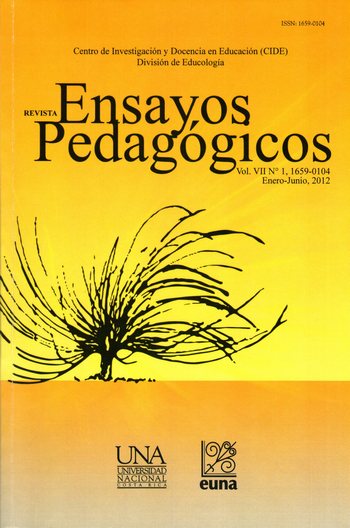The Other Side of Syllabi: An Epistemological Analysis of the Ethics, Aesthetics, and Citizenship Program of Civic Education
DOI:
https://doi.org/10.15359/rep.7-1.3Keywords:
epistemology, syllabi, globalization, student, teacherAbstract
The production of knowledge depends on social, economic, political, cultural, individual, and even collective factors, and the use of a philosophical theory about the production of knowledge in particular will determine which type of knowledge and which results are to be obtained with its application. In Costa Rica, the Ministry of Public Education (MEP, for its acronym in Spanish), among its functions, must establish the syllabi that each discipline will use and implement. To do this, it must seek support in philosophical theories that respond to the way of teaching, learning, and creating knowledge through school. Nonetheless, there are principles in some of these theories that hide some dark propositions.
Downloads
Published
How to Cite
Issue
Section
License
Ensayos Pedagógicos is subscribed to the Attribution-NonCommertial-NoDerivatives 4.0 International Creative Commons Licence, which allows both authors and readers to freely download, store, copy, and distribute the final approved publisehd version of the manuscript (post-print) as long as this is done without commercial purposes, no derivative works are generated, and the source and author are mentioned. As well, Ensayos Pedagógicos declares that authors will remain the rightful owners of the copyrights of their work in perpetuity.







